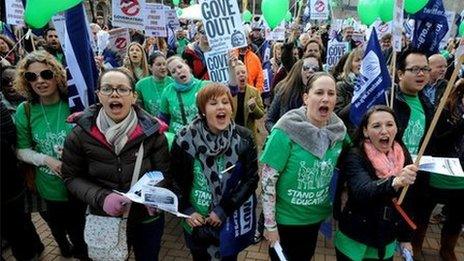Public sector strikes: Why are workers walking out?
- Published
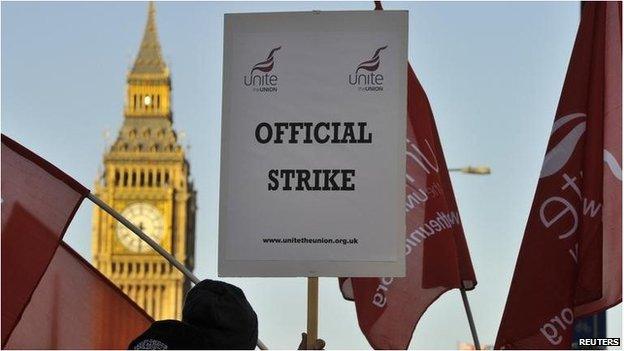
Public sector workers are going on strike in what trade unions claim is the biggest mass walkout since 2011, in a series of disputes over pay and other issues.
Unions representing teachers, firefighters, civil servants and local government staff, among others, have organised the walkout.
So why were the strikes called, who is involved and what will the effects be?

Who is going on strike?
Many of the workers are local government and school support staff from Unison, Unite and GMB. These include teaching assistants, dinner ladies, carers, street cleaners and workers in a wide range of other roles.
They are being joined by members of the National Union of Teachers (NUT), the Fire Brigades Union (FBU), the Northern Ireland Public Service Alliance (NIPSA) and the Public and Commercial Services Union (PCS), which represents civil servants.
Transport for London staff belonging to the RMT and Transport Salaried Staffs' Association (TSSA) are also on strike.

Why were the strikes called?
Pay is the main concern for most of the unions. Many public sector workers have seen their pay frozen since 2010, and strike ballots were called after most were offered a below-inflation rise of 1% for 2014-15.
Coupled with the freeze in previous years, Unison said accepting this would have left workers' pay almost 20% lower, external in real terms than in 2010.
Members of the NUT are striking over issues including pay, pensions and workload, external. The FBU, which is striking over pensions and retirement age, accused the government, external of "destroying our public services and wrecking the lives of millions".
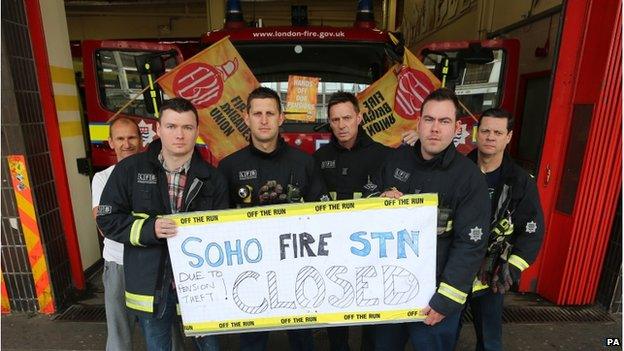
Firefighters have held a series of strikes in recent months

How many workers will be on strike?
More than a million workers were balloted, but each worker had to decide whether to walk out. Before the strike, the FBU and GMB, external both said as many as two million workers could strike, but the government said it believed most would "come to work as usual".
A government spokesman said the "vast majority" of workers did not vote for the strike - meaning most either opposed strike action or did not vote. But Unison, where 85,000 out of 410,000 balloted workers voted, said it hoped "all our members" would strike "in solidarity".

How will services be affected?
It depends on how many workers walk out. The government says it has contingency plans to ensure "key public services remain open".
Many schools announced in advance that they would be closed. Firefighters say they still respond to major incidents during strikes. Transport for London said the RMT and TSSA strikes would have "no impact on transport services".
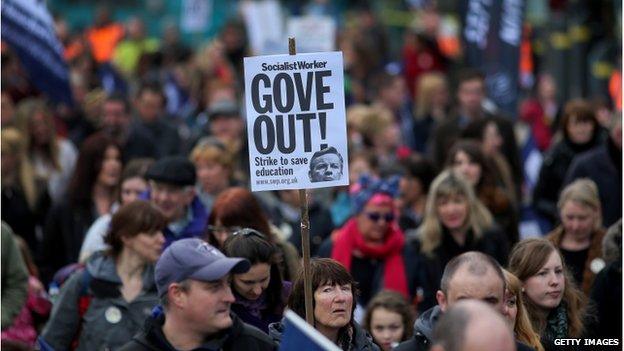
Teachers from the NUT held a one-day strike in March

What will the strikes achieve?
"The aim is to get the employers back around the table to negotiate a fair deal," Unite said, external. The RMT said employers should be "in no doubt", external about its members' determination to "defend pay and pensions".
A Cabinet Office spokesman said the strikes would "achieve nothing and benefit no-one". He added: "Pay restraint protects public sector jobs, supports high-quality public services and helps put the UK's finances back on track."

Will there be more strikes?
The strike is "only the beginning", the PCS said, external, adding that there could be a "mass" protest on 18 October organised by the Trades Union Congress (TUC). NIPSA said, external the strike would be the "first of a rolling programme of action".
The FBU said the latest strike was the 15th in its ongoing campaign, and it has already announced eight consecutive strike days starting from 14 July.

What parts of the UK are involved?
For Unite, Unison and the GMB, the current strike action covers workers in England, Wales and Northern Ireland but not Scotland, while the PCS covers all four nations. The FBU and NUT are England and Wales only.
- Published6 July 2014
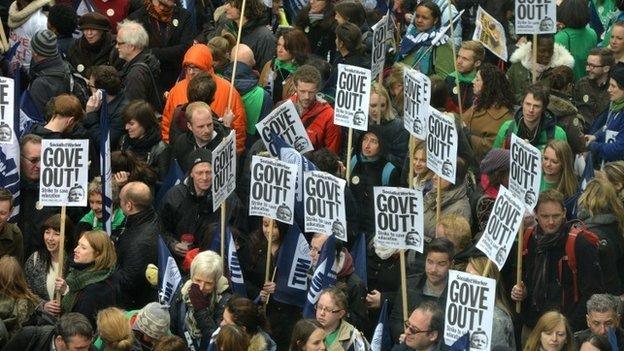
- Published1 July 2014
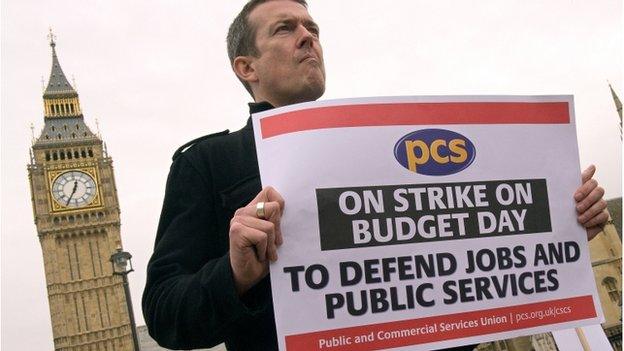
- Published27 June 2014
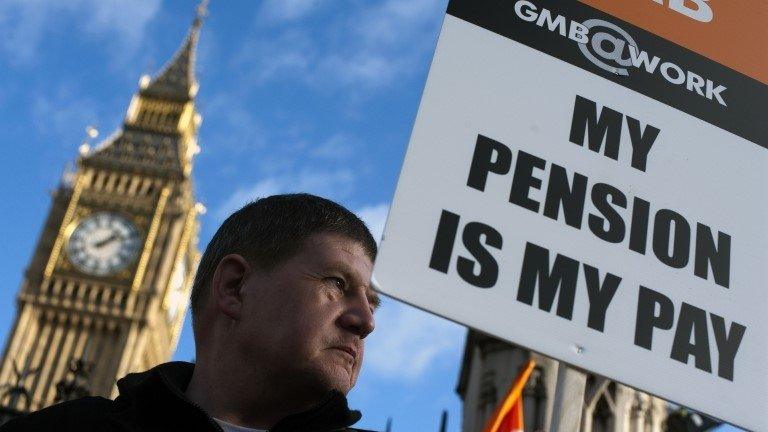
- Published23 June 2014
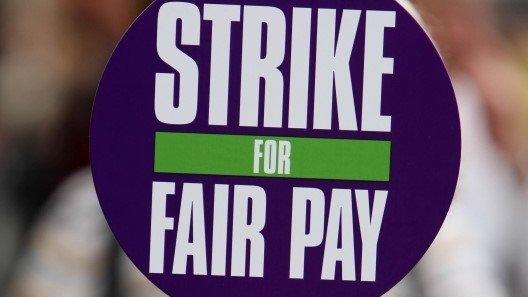
- Published19 June 2014
